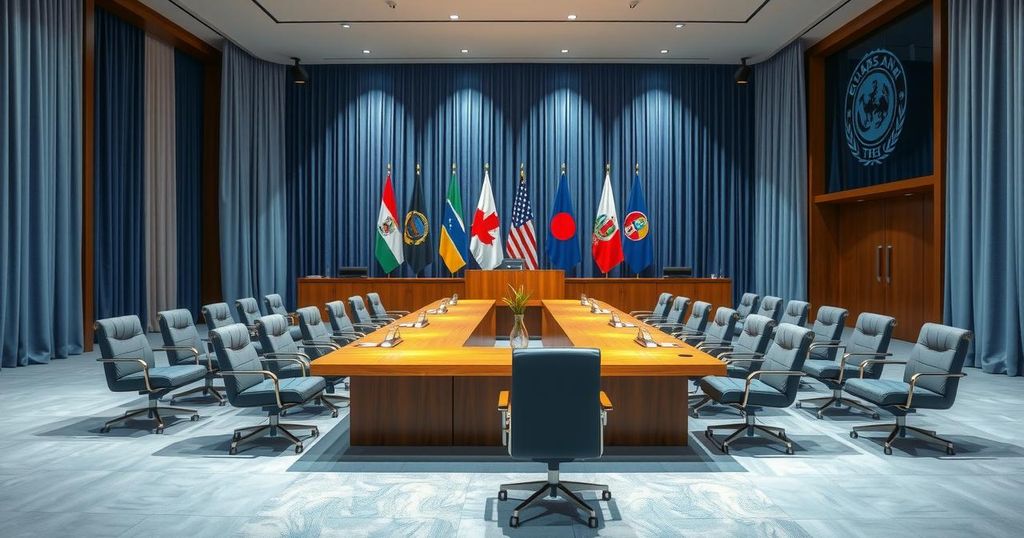Global news
ASIA, CARIBBEAN, CENTRAL UNIT FOR MEDICAL COOPERATION OF CUBA, CHINA, CHINA NEWS SERVICE, CUBA, DIPLOMACY, DONALD TRUMP, EUROPE, EUROPE/ASIA, FOREIGN MINISTRY, GEOPOLITICS, GLOBAL_ISSUES, INTERNATIONAL RELATIONS, LATIN AMERICA, MAO NING, MEXICO, MICHAEL CABRERA LAZA, NORTH AMERICA, RUSSIA, SANCTIONS, SPONSORS OF TERRORISM, SWEDISH TELEVISION, U. S, UKRAINE, VLADIMIR PUTIN, WASHINGTON D. C
Leila Ramsay
0 Comments
China’s Foreign Ministry Comments on International Affairs, March 2025
During the March 19, 2025 press conference, Foreign Ministry Spokesperson Mao Ning discussed U.S. visa restrictions on Cuba, emphasizing Cuba’s humanitarian contributions, criticized U.S. sanctions, and reaffirmed China’s commitment to dialogue regarding the Ukraine crisis. He addressed Japan’s historical responsibilities related to Taiwan and confirmed cooperation with Kiribati on deep-sea mining. Mao also provided remarks on the repatriation of Uyghurs from Thailand.
On March 19, 2025, Foreign Ministry Spokesperson Mao Ning held a press conference addressing various international issues. In response to the U.S. visa restrictions targeting Cuba, Mao highlighted Cuba’s extensive medical outreach over the past sixty years, which includes sending over 600,000 medical personnel to more than 60 countries. These missions have significantly contributed to the health of over 230 million individuals, countering the U.S. claim of “forced labor” as a false narrative used to suppress nations. China urges the U.S. to lift the sanctions on Cuba and enhance bilateral relations.
Additionally, regarding a recent conversation between Russian President Vladimir Putin and U.S. President Donald Trump concerning Ukraine, Mao reiterated China’s call for dialogue and negotiation as essential for resolving the ongoing crisis. On the issue of Chinese companies’ activities in Ukraine, Mao maintained China’s stance, encouraging adherence to China’s core principles concerning international issues.
Mao also commented on Japanese Prime Minister Shigeru Ishiba’s opposition to China’s actions in the Taiwan Strait, asserting that Taiwan is a domestic matter for China and emphasizing Japan’s historical responsibilities regarding Taiwan. Foreign Minister Wang Yi’s upcoming visit to Japan aims to foster dialogue and address differences in a constructive manner.
Regarding a potential deep-sea mining partnership between Kiribati and China, Mao confirmed that China undertakes such collaborations in accordance with international law and principles of mutual benefit. Lastly, in response to queries about Uyghurs deported from Thailand, Mao deferred to relevant authorities, affirming that repatriation adheres to the legal frameworks of both nations. He concluded by remarking on Japan’s need to acknowledge its historical actions and pursue a path of peaceful relations with China.
In summary, the Foreign Ministry’s press conference addressed significant international matters, particularly U.S. policies towards Cuba, the ongoing situation in Ukraine, Japan’s regional role, and cooperation with Kiribati. China emphasized the importance of dialogue, historical recognition, and adherence to international law while advocating for the normalization of relations with other nations and the resolution of conflicts amicably.
Original Source: za.china-embassy.gov.cn




Post Comment